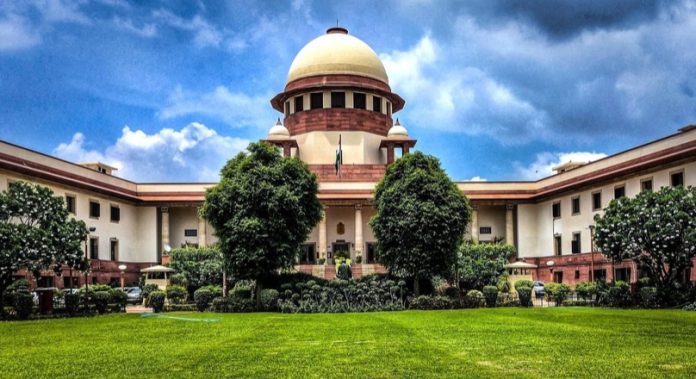New Delhi, August 17: The Supreme Court of India has issued a notice to the Centre, requesting a response to a Public Interest Litigation (PIL) challenging the indefinite detention of Rohingya asylum seekers and refugees in the country. The notice, issued on August 12, 2024, by a bench led by Chief Justice DY Chandrachud and comprising Justices JB Pardiwala and Manoj Misra, is returnable on August 27, 2024, said an ANI report.
The PIL, filed by distinguished scholar Rita Manchanda, raises concerns over the prolonged detention of Rohingya refugees, including women and children, under the Foreigner’s Act, 1946, and the Passports Act (Entry into India), 1929. The petition argues that such detention violates legal procedures and infringes on the detainees’ rights to dignity and humane treatment.
Manchanda, who specializes in South Asian conflicts and peacebuilding, has documented her findings in a report titled Destinies Under Detention: A Case for the Right to Dignity & Humane Treatment of Rohingya Refugees in India. The report highlights the harsh conditions faced by Rohingyas in detention centers, including a lack of access to clean drinking water, nutritious food, mental health support, and adequate medical treatment. The report also notes instances of sexual violence survivors being detained without proper care, as well as the absence of educational or vocational training for Rohingya children, leaving them with no future prospects.
The petition underscores the gravity of the situation by reporting two deaths within the detention centers, including that of a minor. It further claims that detained Rohingyas are not paid for their labor, reflecting a violation of their rights to health and dignity.
The petitioner has urged the Supreme Court to direct the government to release the detainees and provide them with identity documents under the Passport Rules, 1980. Additionally, the petition calls for the assessment of the detainees’ refugee status within three months, as per the Standard Operating Procedure (SOP) dated March 20, 2019, and to either grant them long-term visas or arrange for their resettlement in a third country.
The plea seeks justice for the Rohingyas, emphasizing the need for durable solutions to protect this vulnerable and persecuted community.




